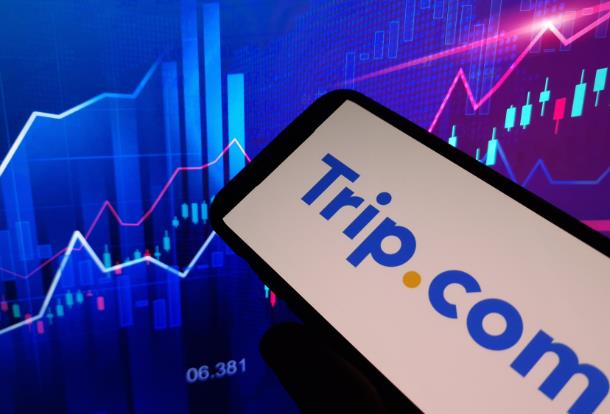Tnooz, Thomas Meriaux - My previous article for Tnooz looked at the various channels available for international travel suppliers to promote themselves directly to the Chinese outbound traveller. The other option for tour operators, resorts or hotels is to work in a B2B context with Chinese OTAs
You may think “Chinese OTAs know how to attract Chinese tourists, they know how to handle them but they don’t know how to properly handle the destination, my destination”.
This is true, to an extent. OTAs do not know about destinations, but by fostering a relationship with them, getting them to bring your business, you can start to understand the Chinese tourist and develop a direct relationship with them, reducing your dependence on the agents.
A deep change in the market
For the past two years there has been a rise in independent or DIY travel and it keeps growing. Offline agencies tend to attract middle-aged to elderly people; younger folk are more likely to use the OTAs.
Still, let’s have a look at how you could make a partnership with those particular agencies.
One word of warning, especially targeted at tour operators: tours are probably the easiest thing in the world to copy unless you have access to unique inventory. It is a bit of a cliché but once a contract is over you may expect Chinese agencies to run their own version of the tour you spent so much time designing.
So what do you need?
Good visibility: Baidu SEO.
The first thing Chinese OTAs in search of B2B partnerships will undoubtedly be looking for are suppliers which best fit their needs. So, how do you get noticed? Only one answer: SEO.
Since Baidu holds about 55% of the Chinese search engine market, it’s the best place to start. Besides, SEO rules do not vary much between Chinese search engines so a good ranking on Baidu means a fairly good one on others as well.
Effective SEO allows suppliers to truly stand out from their competition. The Chinese OTA market is hyper-competitive – Ctrip and Qunar are the dominant online players but they are not alone – suppliers need good consumer-facing SEO to grab the attention of the market at large.
Given how big the OTAs are, when foreign destinations want to have a good visibility on search engines they also need to rank better than the biggest OTA, whose ranking is usually very strong on the most competitive keywords. To counter this, you need to think about long-tail keywords. For instance instead of writing “French travel” consider the more specific “French Burgundy travel” or even “French Burgundy Travel Agency”.
Long tail helps you bring more qualified traffic, visitors more likely to be interested by your product and establish partnership in a B2B perspective
Since at the time of writing this article I had an urge for a good glass of wine, I couldn’t help but type French Burgundy Travel. That is how I obtained those results below. The ones on the right are paid results and the ones in the middle are natural results.
When the big Chinese agencies – including the offline players – want to partner with local agencies, they will use a search engine exactly like a consumer would and see what comes up first. That is how SEO can help you and why you need to be there.
Good e-reputation
Chinese agencies are careful about working with new suppliers. You have to have a strong digital presence, backed up by a good reputation on Chinese travel review sites. This can be achieved through a carefully planned e-reputation campaign,
Travel.sohu is a great place to start. It is the travel oriented part of Sohu, one of the biggest portals in China
Securing a presence on this site will work wonders for your reputation with consumers and potential B2B partners. One option is to invite and host one of its travel experts to your destination, if you have the budget for it that is.
Yes, you read correctly; that is about 2 million views and 719 comments for that 旅游达人 (or travel expert) Sohu Blog.
It is important for hotels, destination or any B2B supplier to work on its credibility via SEO e-reputation management before contacting Chinese agencies
SEO e-reputation works the same way as mentioned before but what a hotel/agency only need to worry about is what will show up when people type their company’s name.
For example, here’s the result from a query about Aiguemarine, a Paris-based luxury travel agency, on Baidu
The natural search results show that the business has caught the eye of Chinese Vogue, among others, confirming its position as a luxury operator.
Social networks in a B2B context – instant messaging apps, QQ and WeChat
WeChat is an increasingly important vehicle for Chinese tourists and travel firms, although the industry is struggling to come to terms with exactly how to channel its potential in a B2C environment.
However in B2B the use of WeChat is clear: discussions and groups are the key. One option for overseas suppliers is to engage with groups on WeChat and also QQ.
These products allow dozens of professionals in one group to discuss business matters while staying online. WeChat is very powerful in this situation.
QQ groups also help for general discussions about the business, building contacts and can help you optimise any business trips to China by letting you know about any must-attend events
WeChat: Private and Convenient for business… I scan you!
The QR code is perfect to quickly add business contacts to your network when you are running short on business cards at a networking event for instance. Often scanning each other is the most sure way to stay in touch
Suppliers can design a proactive B2B marketing strategy by starting groups in which they can add contacts, therefore building a tight B2B community, very useful for doing business in China.
This allows you to be active in several WeChat groups; each specialized in one portion of your offer. This segmented approach works better than having a huge group and can keep the conversations private and targeted – less than 50 people is ideal.
Conclusion
There must be very few travel suppliers in the world who are not interested in China. For those that are, getting your product in front of a billion people might seem daunting. An effective starting point for suppliers looking for B2B partnerships is to work on your consumer-facing digital presence.
This is a Tnooz guest article by Thomas Meriaux, a Shanghai-based digital marketing expert specialising in the tourism and entertainment sectors.
Read original article




